Welcome to the future of living in the United Kingdom. Whether you’re a US expat considering moving to the UK or a born-and-bred Brit looking for some insights into how your fellow citizens are getting by financially, understanding the cost of living in the UK is crucial to making informed decisions.
This article will delve into the nitty-gritty details of the average cost of living in the United Kingdom and what it takes financially to live there comfortably in 2025. From housing and transportation to food and entertainment expenses, we will provide an insightful breakdown to help you plan your finances accordingly.
How Where You Live in the UK Affects Living Costs
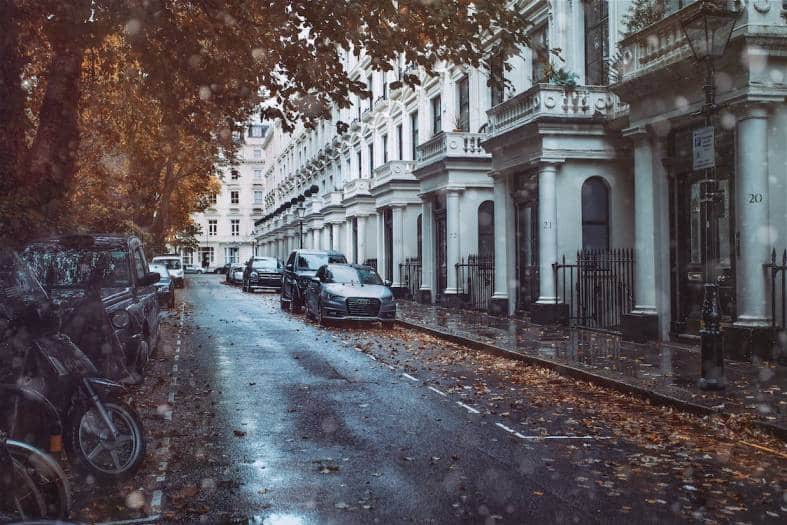

First and foremost, regardless of where you live in the world, there can be a drastic difference in the cost of living from region to region and city to city, and this is no different for the United Kingdom.
London and surrounding areas of southern England are typically the most expensive places to live in, followed by major cities further north like Manchester, Birmingham, and Edinburgh. Rural areas and small towns tend to be cheaper than big cities, but there can be exceptions. For example, living in the seaside city of Brighton and Hove can be almost as expensive as living in London.
Several factors affect the cost of living in the UK for a single person or a family of four in a particular place. A robust and growing local economy will have a significant impact on things like average rent prices and childcare costs, but it can also mean a comfortable lifestyle with more job opportunities and good local transport.
The Cost of Living in the UK by City
Here is a breakdown of the average monthly cost of living in the UK excluding rent in different cities around the United Kingdom. The figures are extracted from Numbeo.
London
Of all the UK cities, London is the most well-known and also the most expensive. As one of the largest cities in Europe, it’s an urban metropolis spanning hundreds of square miles. London leads in many business-related statistics, such as the highest concentration of businesses in the UK. It’s also the global headquarters for many international corporations, particularly those in finance.
Consequently, job opportunities in London are plentiful, and wages in London compared to the rest of the UK are generally higher, so the desire to move there remains strong, despite rising rent prices and energy costs.
The average cost of living in London excluding rent:
- Family of four: £3,266 ($3,922.20)
- Single person: £958.10 ($1,150.60)
The average price of accommodation in London:
- Three-bedroom apartment in the city center: £3,833.81 ($4,563.67)
- Three-bedroom apartment outside the center: £2,531.35 ($3,013.26
- One-bedroom apartment in the city center: £2,041.75 ($2,430.45)
- One-bedroom apartment outside the center: £1,430.05 ($1,702.30)
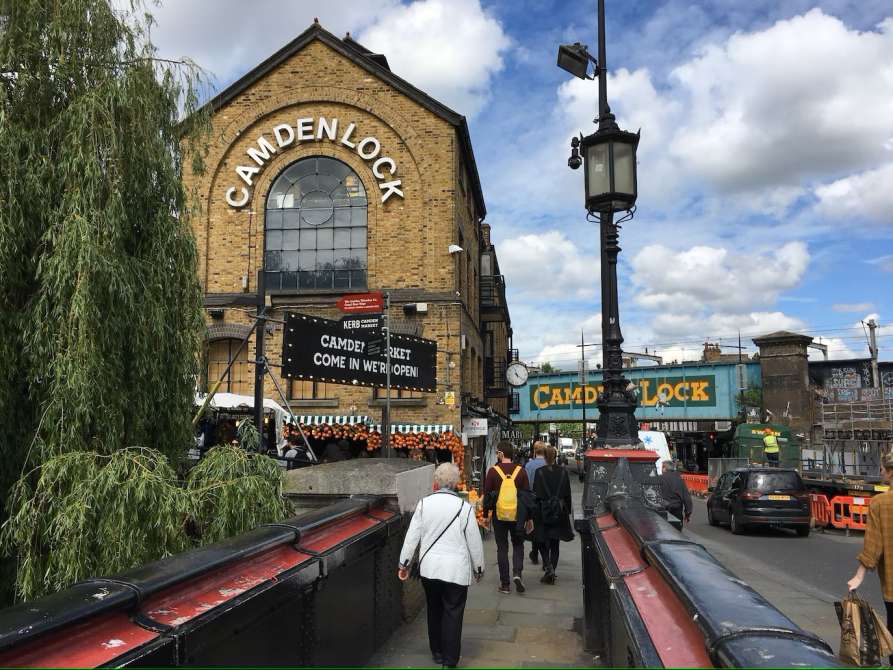
Manchester
Over the last few years, due to rising costs of living, Manchester has experienced rapid development, with many international companies and people from the south relocating there to save money and take advantage of the booming economy.
International students flock to Manchester, which hosts some of the top UK universities and a large student population. It’s also the best place for business outside London, and it is a global hub with a major international airport.
The average cost of living in Manchester without rent:
- Family of four: £2,536.50 ($3,046.13)
- Single person: £746.40 ($896.37)
The average price of accommodation in Manchester:
- Three-bedroom apartment in the city center: £1,741.18 ($2,091.02)
- Three-bedroom apartment outside the center: £1,052.50 ($1,263.97)
- One-bedroom apartment in the city center: £910.69 ($1,093.67)
- One-bedroom apartment outside the center: £679.60 ($816.15)
Edinburgh
Edinburgh is one of the most popular tourist destinations in the UK. Its quaint and cinematic feel is hard to find anywhere else. Although a long way from London, the quality of life in Edinburgh is considered to be better in many ways, particularly concerning safety. It’s one of the safest cities in the UK, with a crime rate significantly lower than the national average.
Despite a relatively small population in UK terms, it’s the most expensive city in Scotland and one of the more expensive cities in the UK due to high rental demand, available properties for rent are few and far between. A major factor to this is its national and global popularity yet small city center, as well as a scattering of rows of Grade II listed buildings which prevent a lot of modern development and expansion.
The average cost of living in Edinburgh without rent:
- Family of four: £2,422.80 ($2,909.59)
- Single person: £716 ($859.86)
The average price of accommodation in Edinburgh:
- Three-bedroom apartment in the city center: £2,021.88 ($2,428.12)
- Three-bedroom apartment outside the center: £1,188.33 ($1,427.09)
- One-bedroom apartment in the city center: £1,007.40 ($1,209.81)
- One-bedroom apartment outside the center: £755.23 ($906.97)
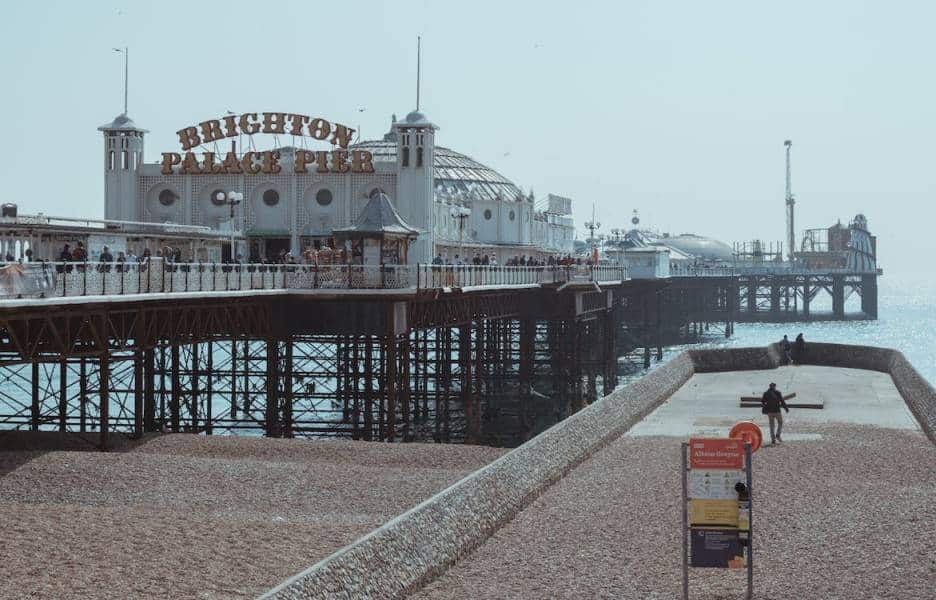

Brighton
A top-rated seaside destination among UK nationals and foreign tourists, Brighton offers the best of both worlds when it comes to living by the sea and having access to the infrastructure of a larger city.
At one hour by train to London, the journey is easily commutable; hence, many people who work in London are based in Brighton. Good public transport links and a large population of residents who work outside the city mean that housing prices can be relatively high.
The average cost of living in Brighton without rent:
- Family of four: £2,709.60 ($3,254.01)
- Single person: £788.50 ($946.93)
The average price of accommodation in Brighton:
- Three-bedroom apartment in the city center: £2,287.50 ($2,747.10)
- Three-bedroom apartment outside the center: £1,795.23 ($2,155.93)
- One-bedroom apartment in the city center: £1,158.33 ($1,391.06)
- One-bedroom apartment outside the center: £946.15 ($1,136.25)
Hull
Hull is a place that often goes under the radar in talks of the best cities to live in the UK. But if you’re on a tighter budget and a cheap cost of living is your main concern, Hull might just offer the most bang for your buck. It was once an industrial city that didn’t have much going for it, but in recent years a lot of public funding has been pumped into the local economy to attract outside investment. Although there are higher salaries in the south, your pound will go much further in Hull.
The city is still primarily in its early growth phase, so prices are relatively low compared to London and cities in northern England like Manchester, and Edinburgh in Scotland. According to the UK’s largest online real estate property portal, Rightmove, the average house price in Hull was £164,134 ($197,142) in 2022, whereas the average price in London was £731,178 ($878,225) and £286,314 ($343,894) in Manchester.
The average cost of living in Hull without rent:
- Family of four: £2,091.90 ($2,512.20)
- Single person: £614.30 ($737.73)
The average price of accommodation in Hull:
- Three-bedroom apartment in the city center: £1,741.18 ($2,091.02)
- Three-bedroom apartment outside the center: £1,052.50 ($1,263.97)
- One-bedroom apartment in the city center: £910.69 ($1,093.67)
- One-bedroom apartment outside the center: £679.60 ($816.15)
Northern Ireland and Wales
For the cost of living in cities like Belfast in Northern Ireland and Cardiff in South Wales, here is a breakdown of the average monthly costs:
Belfast
- Family of four: £2,448.60 ($2,940.57)
- Single person: £694 ($833.44)
- Three-bedroom apartment in the city center: £1,387.50 ($1,666.28)
- Three-bedroom apartment outside the center: £871.67 ($1,046.81)
- One-bedroom apartment in the city center: £868.18 ($1,042.61)
- One-bedroom apartment outside the center: £605.70 ($727.40)
Cardiff
- Family of four: £2,337 ($2,806.55)
- Single person: £699.40 ($839.92)
- Three-bedroom apartment in the city center: £1,912.50 ($2,296.76)
- Three-bedroom apartment outside the center: £1,069.75 ($1,284.68)
- One-bedroom apartment in the city center: £785 ($942.72)
- One-bedroom apartment outside the center: £647.08 ($777.09)
The Average Cost of Housing in the UK
Regarding developed countries, the UK is in the middle ground where the cost of housing is concerned. According to figures from Numbeo, the average price of a one-bedroom apartment in a city center in the UK is £898.68 ($1,079.41) per month, whereas, in Spain, the same property is 28 percent cheaper at £648.46 ($778.87) on average. However, the average price of a one-bedroom apartment in a city center in the US is £1,416.45 ($1,701.31), 36.6 percent more expensive than in the UK.
The gap widens in more rural areas, with the monthly average rent price of £1,180.23 ($1,417.59) for a three-bedroom apartment outside the center in the UK and £814.78 ($978.64) for a similar Spanish property. The US is significantly more expensive than both, with an average monthly rent price of £1,862.36 ($2,236.90).
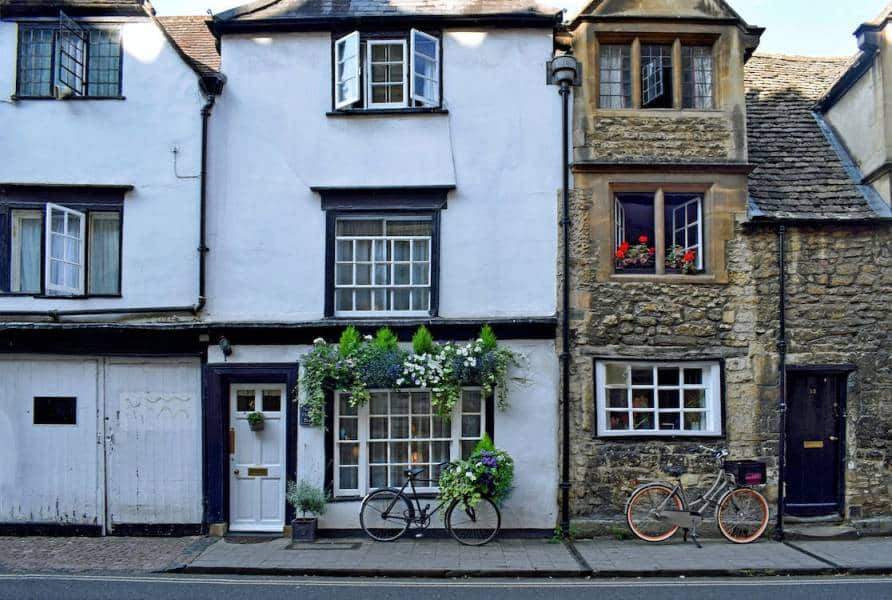
Concerning property prices, data from the Office for National Statistics (ONS) had the average UK house price at £294,000 ($353,600) in December 2022. The United States Census Bureau reported an average US house price of $427,500 (£355,900) in January 2023, 17.3 percent more expensive than in the UK. You can also expect to pay £250 to £300 ($208 to $361) for the average property search cost by a real estate agent.
Annual property tax in the UK
An annual property tax – known as council tax in the UK – must also be accounted for. How council tax works can be confusing as it is calculated based on the property’s estimated value in April 1991 (April 2003 in Wales). This means that if you own a new property in the UK, your property may be subject to a higher council tax rate than a more expensive property built 30 years ago.
Houses are assigned a lettered tax band from A to H, and the monthly cost can range from about £90 ($108.10) to £280 ($336.31).
The Average Cost of Food and Drink in the UK
According to data from the Office for National Statistics (ONS), the average cost of food and drink in the UK is £771 ($926.06) per month for a family of four. For a single person, the average cost is £206 ($247.43). Here is a breakdown of the costs:
Family of four
- Grocery shopping: £559 ($671.42)
- Eating out: £212 ($254.64)
Single person
- Grocery shopping: £149 ($178.97)
- Eating out: £57 ($68.46)
Here is a breakdown of the costs when eating out:
- Meal at an inexpensive restaurant: £15 ($18.02)
- Meal for two at a mid-range restaurant: £55 ($66.06)
- Combo meal at a fast food restaurant: £6 ($7.10)
- Domestic beer in a restaurant: £4 ($4.80)
- Cappuccino: £2.94 ($3.53)
- Soda can: £1.47 ($1.77)
- Bottled water: £1.07 ($1.29)
The Average Cost of Utilities in the UK
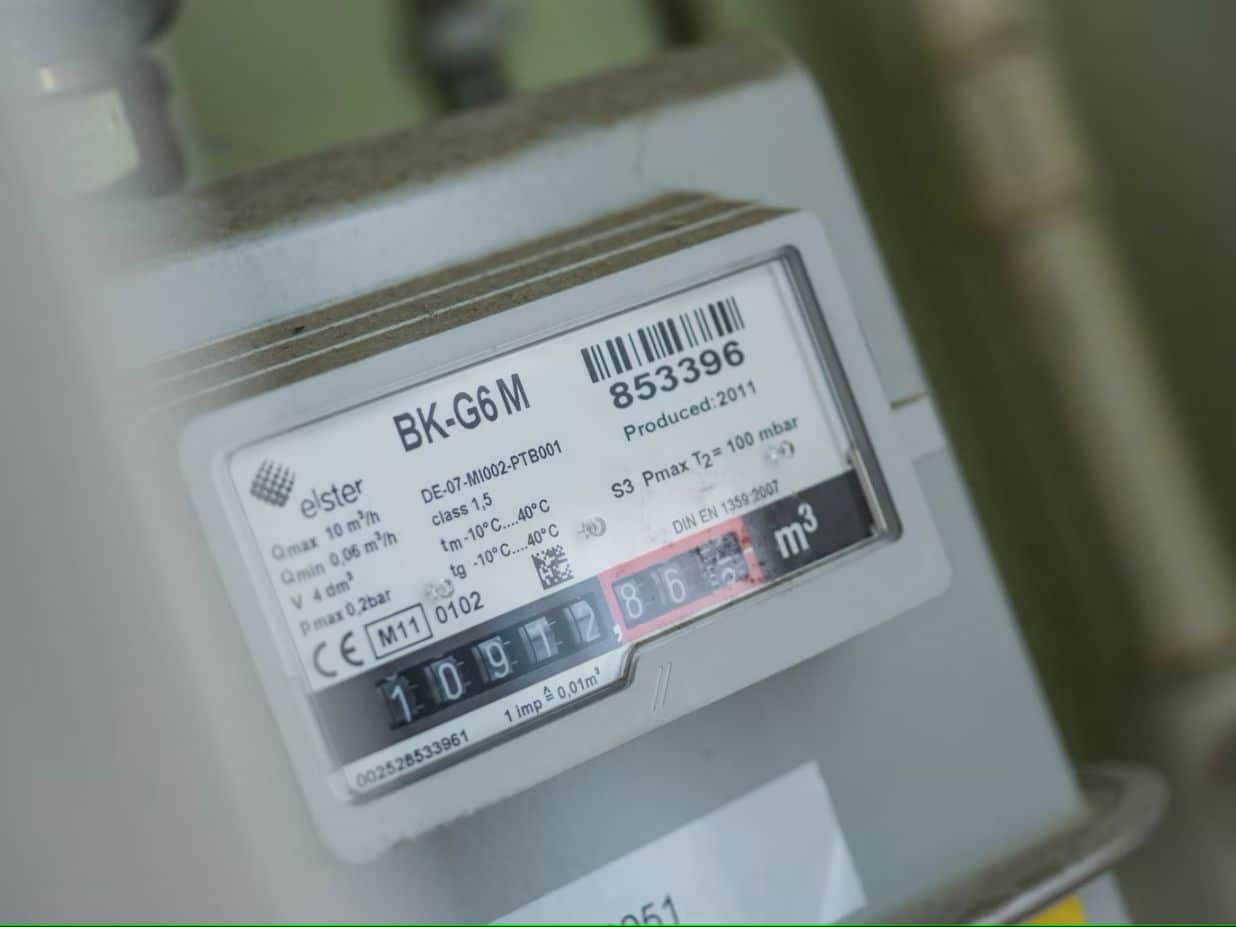

Inflation combined with a lack of supply has had the most significant impact on energy bills in the UK, raising average utility costs significantly. Figures from Ofgem measuring utility bills between October 2022 and January 2023 saw electricity prices rise by 66.7 percent. The rise in gas prices was even higher at 129.4 percent in the same time period.
Based on the average annual consumption, the average monthly cost of gas and electricity would be:
- Family of four: £291.08 ($349.62)
- Individual: £142.69 ($171.39)
The regulatory body for water services in the UK, Water UK, has announced that the average water bill will rise to £448 ($538.10) annually from 2023.
The Average Cost of Transport in the UK
Public transportation is well-connected and adequate in large cities in Great Britain. The regular price can vary greatly depending on the town and mode of transport. The average bus fare in the UK is just over £2.80 ($3.36). A London Oyster card to use the bus, train, and underground tube will cost £156.30 ($187.73) for a monthly pass covering zones one and two and £285.70 ($343.16) covering up to zone six. The fees are reduced by 30 percent on student Oyster cards.
Data collected from insurance comparison site Compare the Market and financial analytics company NimbleFins put the average monthly cost of car ownership in the UK at £296.33 ($355.92) per month. This included fuel, car insurance, repairs and maintenance, and road tax.
Private Healthcare Costs in the UK
For those with British citizenship and permanent residents who hold Indefinite Leave to Remain (ILR), the UK’s National Health Service (NHS) provides free essential and emergency health care. The only cost incurred for anyone under the NHS is a subsidized fee of £9.50 ($11.41) for prescriptions. This fee will cover any type of medication or length of treatment prescribed by an NHS doctor. The cost of dental care is also heavily subsidized.
All other UK residents are required to pay the mandatory Immigration Health Surcharge (IHS) of £624 ($749.49) [international students pay £470 ($564.52)] per year to access NHS services. If you’re a UK permanent resident, depending on your residence visa, you can apply for Indefinite Leave to Remain within two to five years. Once approved, you’ll no longer be liable to pay the IHS.
The average price for private health insurance in the Great Britain is relatively cheap if we compare prices to the United States. Based on quotes from some of the UK’s largest health insurance providers, such as Axa, Bupa, and Aviva, the average private health insurance policy for a middle-aged couple and two children would be £148 ($177.76) monthly compared to an average of $928 for a basic plan in the US.
On average, middle-aged individuals in the UK pay £66 ($79.27) per month. In the US, an individual’s health insurance would cost $600 to $700 monthly for an employer-sponsored plan (with employees contributing an average of around $105 to the policy).
The Average Living Costs for Students in the UK
Studying in the United Kingdom can be a fantastic experience. A 2020 survey published by Statista in January 2023 showed that the UK hosted the second most international students in the world, behind the United States, with 551,495 overseas students. The Higher Education Statistics Agency’s study for the academic year 2021/2022 now puts this figure at 679,970.
What attracts so many foreigners to study in the UK?
For one, the UK has historically had two world-class universities – the University of Oxford and the University of Cambridge – rank in the top three universities in the world for over 200 years. Several more universities dotted around the country, such as the University of Edinburgh, University College London, and the University of Manchester, also place high in university rankings.
Cost of living breakdown for international students
In terms of living costs, a big draw to the UK for university and private education is that university tuition fees are much lower than in the US. International fees for international students range from £3,500 ($4,203.88) to about £18,000 ($21,619.98) per year, depending on your course level, the type of course, and the institution.
If you’re an expat parent looking for an international school for your child, check out our article: Best Schools in the UK

Most international students rent shared accommodation to save money and reduce rental costs. The average price of monthly rent for a room in London in 2022 was £650. In the North West, the average monthly price is much lower at £416 ($500). Based on the living costs for an individual, excluding tuition fees and the Immigration Health Surcharge (IHS), the cost to live in the UK for an international student studying in Manchester would be around a thousand pounds a month at £1,030.30 ($1,237.50), including rent.
The day-to-day costs of living for UK nationals and an international student are the same; the only difference is that British students can save more money with lower university tuition fees and access to subsidies and interest-free loans.
Entertainment and Additional Expenses
There are additional expenses in the UK to account for that may not exist in your home country. For example, if you own a TV with a terrestrial service, you’ll be liable to pay for a UK TV license, which costs £159 ($190.98) annually.
Here is a list of some other average monthly costs not already accounted for or broken down:
Childcare (25 hours): £137.69 ($165.38) per week
Internet for home (60Mbps unlimited data): £29.95 ($35.97)
1GB of mobile data: £0.67 ($0.80)
Fitness center membership: £31.30 ($37.59)
Cinema ticket: £10 ($12.01)
Theater ticket: £140.85 ($168.85)
Frequently Asked Questions about the Cost of Living in the UK
Is it expensive to live in the UK?
The average living cost in the UK is fairly high if you earn minimum wage, but this depends on where you live and your lifestyle. Generally, the UK falls somewhere in the middle compared to other countries in Western Europe, with living costs lower than in developed nations like Switzerland and Denmark but higher equivalent lifestyle than in Spain and Portugal.
Can I live on $1,500 a month in the UK?
You can live a comfortable life in the UK for $1,500 a month by renting a shared property outside major cities and using public transportation. According to SpareRoom – the largest shared accommodation platform in the UK – the average monthly rent cost of a shared property in Yorkshire and Humberside is £400 ($609.61) per month. The cost of living for an individual or student, without tuition fees, in Hull is £614.30 ($737.73) monthly. For a person renting a room in Hull, the average cost of living would be £914.30 ($1,347.34), including rent and basic utilities.
What is the average monthly cost of living in the UK?
Based on data from Numbeo, the average cost to live in the UK with rent is:
- £4,003.40 ($4,808.52) for a family of four living in a three-bedroom apartment in the city center and £3,611.09 ($4,337.32) for a family of four living in a three-bedroom apartment outside the center
- £1,610.68 ($1,934.60) for an individual living in a one-bedroom apartment in the city center and £1,401.14 ($1,682.92) for an individual living in a one-bedroom apartment outside the center


